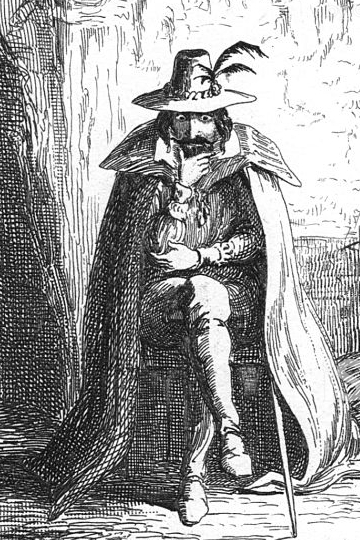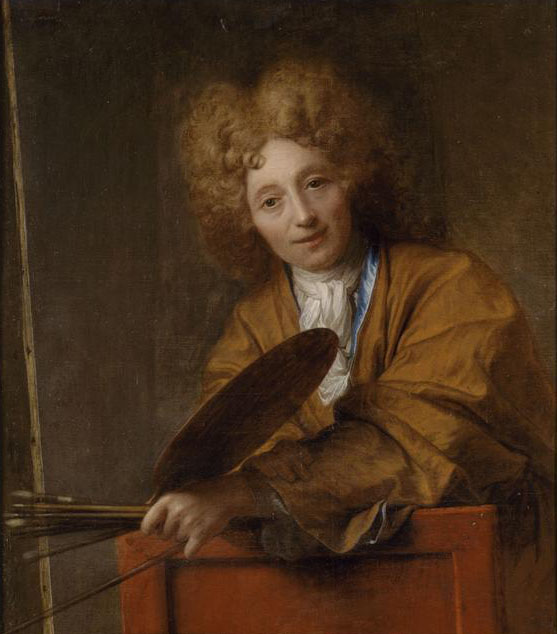|
Gil GonzûÀlez DûÀvila (historian)
Gil GonzûÀlez DûÀvila (1570ã1658) was a Spanish archivist, courtier and chronicler.Celia Parcero Torre"Gil GonzûÀlez DûÀvila" ''Diccionario biogrûÀfico espaûÝol''. Retrieved 16 December 2022. Life He was born and died at ûvila, Spain, ûvila. He spent his early years in Rome, where he was educated at the residence of Cardinal Deza. He returned to Spain when he was 20 and settled in Salamanca. He was called to Madrid and made historiographer to the Crown of Castile in 1612, and for the Indies in 1641. Of his numerous works, the most valuable are his ''Teatro de las Grandezas des Madrid'' (Madrid, 1623, sqq.), and his ''Teatro Eclesiastico'', descriptive of the metropolitan churches and cathedrals of Castile (historical region), Castile, with lives of the prelates (Madrid, 1645ã1653, 4 vols.) Notes References * Attribution * 1570 births 1658 deaths Spanish biographers Spanish male biographers 17th-century Spanish historians People from the Papal States {{Spain-his ... [...More Info...] [...Related Items...] OR: [Wikipedia] [Google] [Baidu] |
Rome
Rome (Italian language, Italian and , ) is the capital city and most populated (municipality) of Italy. It is also the administrative centre of the Lazio Regions of Italy, region and of the Metropolitan City of Rome. A special named with 2,746,984 residents in , Rome is the list of cities in the European Union by population within city limits, third most populous city in the European Union by population within city limits. The Metropolitan City of Rome Capital, with a population of 4,223,885 residents, is the most populous metropolitan cities of Italy, metropolitan city in Italy. Rome metropolitan area, Its metropolitan area is the third-most populous within Italy. Rome is located in the central-western portion of the Italian Peninsula, within Lazio (Latium), along the shores of the Tiber Valley. Vatican City (the smallest country in the world and headquarters of the worldwide Catholic Church under the governance of the Holy See) is an independent country inside the city boun ... [...More Info...] [...Related Items...] OR: [Wikipedia] [Google] [Baidu] |
Salamanca
Salamanca () is a Municipality of Spain, municipality and city in Spain, capital of the Province of Salamanca, province of the same name, located in the autonomous community of Castile and Leû°n. It is located in the Campo Charro comarca, in the Meseta Norte, in the northwestern quadrant of the Iberian Peninsula. It has a population of 144,436 registered inhabitants (National Institute of Statistics (Spain), INE 2017). Its ûrea funcional estable, stable functional area reaches 203,999 citizens, which makes it the second most populated in the autonomous community, after Valladolid. Salamanca is known for its large number of remarkable Plateresque-style buildings. The origins of the city date back to about 2700 years ago, during the first Iron Age, when the first settlers of the city settled on the Cerro de San Vicente Archaeological Park (Salamanca), San Vicente hill, on the banks of the Tormes. Since then, the metropolis has witnessed the passage of various peoples: Vaccaei, Vett ... [...More Info...] [...Related Items...] OR: [Wikipedia] [Google] [Baidu] |
Madrid
Madrid ( ; ) is the capital and List of largest cities in Spain, most populous municipality of Spain. It has almost 3.5 million inhabitants and a Madrid metropolitan area, metropolitan area population of approximately 7 million. It is the Largest cities of the European Union by population within city limits, second-largest city in the European Union (EU), and its wikt:monocentric, monocentric Madrid metropolitan area, metropolitan area is the List of metropolitan areas in Europe by population, second-largest in the EU.United Nations Department of Economic and Social AffairWorld Urbanization Prospects (2007 revision), (United Nations, 2008), Table A.12. Data for 2007. The municipality covers geographical area. Madrid lies on the Manzanares (river), River Manzanares in the central part of the Iberian Peninsula at about above mean sea level. The capital city of both Spain and the surrounding Community of Madrid, autonomous community of Madrid (since 1983), it is also th ... [...More Info...] [...Related Items...] OR: [Wikipedia] [Google] [Baidu] |
Crown Of Castile
The Crown of Castile was a medieval polity in the Iberian Peninsula that formed in 1230 as a result of the third and definitive union of the crowns and, some decades later, the parliaments of the kingdoms of Kingdom of Castile, Castile and Kingdom of Leû°n, Leû°n upon the accession of the then Castilian king, Ferdinand III of Castile, Ferdinand III, to the vacant List of Leonese monarchs, Leonese throne. It continued to exist as a separate entity after the personal union in 1469 of the crowns of Castile and Crown of Aragon, Aragon with the marriage of the Catholic Monarchs up to the promulgation of the Nueva Planta decrees by Philip V of Spain, Philip V in 1716. In 1492, the voyage of Christopher Columbus and the discovery of the Americas were major events in the history of Castile. The West Indies, Islands and Mainland of the Ocean Sea were also a part of the Crown of Castile when transformed from lordships to kingdoms of the heirs of Castile in 1506, with the Treaty of VillafûÀ ... [...More Info...] [...Related Items...] OR: [Wikipedia] [Google] [Baidu] |
Castile (historical Region)
Castile or Castille (; ) is a territory of imprecise limits located in Spain. The use of the concept of Castile relies on the assimilation (via a metonymy) of a 19th-century determinism, determinist geographical notion, that of Castile as Spain's ("tableland core", connected to the Meseta Central) with a long-gone historical entity of diachronically variable territorial extension (the Kingdom of Castile). The proposals advocating for a particular semantic codification/closure of the concept (a ''dialogical'' construct) are connected to Essentialism#In historiography, essentialist arguments relying on the Reification (fallacy), reification of something that does not exist beyond the social action of those Social constructivism, building Castile not only by Castilian nationalism, identifying with it as a homeland of any kind, but also Alterity, ''in opposition'' to it. A hot topic concerning the concept of Castile is its relation with Spain, insofar intellectuals, politicians, writ ... [...More Info...] [...Related Items...] OR: [Wikipedia] [Google] [Baidu] |
1570 Births
__NOTOC__ 1570 ( MDLXX) was a common year starting on Sunday in the Julian calendar. Events January–March * January 8 – Ivan the Terrible begins the Massacre of Novgorod. * January 23 – The assassination of Scottish regent James Stewart, 1st Earl of Moray, by James Hamilton, the first known shooting of a national leader, throws Scotland into civil war. Having loaded a carbine rifle and carried it into the Linlithgow home of his uncle, the Archbishop of St Andrews, Hamilton stands at an upstairs window overlooking the street where Moray will ride by on horseback as part of cavalcade. Once Moray comes into range, Hamilton fires and fatally wounds the regent for King James VI. * February 8 – An estimated 8.3 magnitude earthquake occurs in Concepciû°n, Chile. * February 5 – Venus occults Jupiter; this will next happen in 1818. * March 28 – The ambassador of the Ottoman Sultan Selim II goes before the governing Council of the Venetia ... [...More Info...] [...Related Items...] OR: [Wikipedia] [Google] [Baidu] |
1658 Deaths
Events January–March * January 13 – Edward Sexby, who had plotted against Oliver Cromwell, dies in the Tower of London. * January 30 – The "March Across the Belts" (''TûËget ûÑver BûÊlt''), Sweden's use of winter weather to send troops across the waters of the Danish straits at a time when winter has turned them to ice, begins. Within 17 days, Sweden's King Karl X Gustav leads troops across the ice belts to capture six of Denmark's islands as Swedish territory. * February 5 – Prince Muhi al-Din Muhammad, one of the sons of India's Mughal, Emperor Shah Jahan, proclaims himself Emperor after Jahan names Muhi's older brother, Dara Shikoh, as regent, and departs from Aurangabad with troops. * February 6 – Swedish troops of Charles X Gustav of Sweden March Across the Belts, cross The Great Belt in Denmark, over frozen sea. * March 8 (February 26 Old Style and New Style dates, OS) – The peace between Sweden and Denmark-Norway is concluded i ... [...More Info...] [...Related Items...] OR: [Wikipedia] [Google] [Baidu] |
Spanish Biographers
Spanish might refer to: * Items from or related to Spain: **Spaniards are a nation and ethnic group indigenous to Spain **Spanish language, spoken in Spain and many countries in the Americas **Spanish cuisine ** Spanish history ** Spanish culture **Languages of Spain, the various languages in Spain Other places * Spanish, Ontario, Canada * Spanish River (other), the name of several rivers * Spanish Town, Jamaica Other uses * John J. Spanish (1922ã2019), American politician * "Spanish" (song), a single by Craig David, 2003 See also * * * EspaûÝol (other) * Spain (other) * EspaûÝa (other) * Espanola (other) * Hispania, the Roman and Greek name for the Iberian Peninsula * Hispanic, the people, nations, and cultures that have a historical link to Spain * Hispanic (other) * Hispanism * Spain (other) * National and regional identity in Spain * Culture of Spain The culture of Spain is influenced by its Weste ... [...More Info...] [...Related Items...] OR: [Wikipedia] [Google] [Baidu] |
17th-century Spanish Historians
The 17th century lasted from January 1, 1601 (represented by the Roman numerals MDCI), to December 31, 1700 (MDCC). It falls into the early modern period of Europe and in that continent (whose impact on the world was increasing) was characterized by the Baroque cultural movement, the latter part of the Spanish Golden Age, the Dutch Golden Age, the French '' Grand Siû´cle'' dominated by Louis XIV, the Scientific Revolution, the world's first public company and megacorporation known as the Dutch East India Company, and according to some historians, the General Crisis. From the mid-17th century, European politics were increasingly dominated by the Kingdom of France of Louis XIV, where royal power was solidified domestically in the civil war of the Fronde. The semi-feudal territorial French nobility was weakened and subjugated to the power of an absolute monarchy through the reinvention of the Palace of Versailles from a hunting lodge to a gilded prison, in which a greatly expanded ... [...More Info...] [...Related Items...] OR: [Wikipedia] [Google] [Baidu] |


